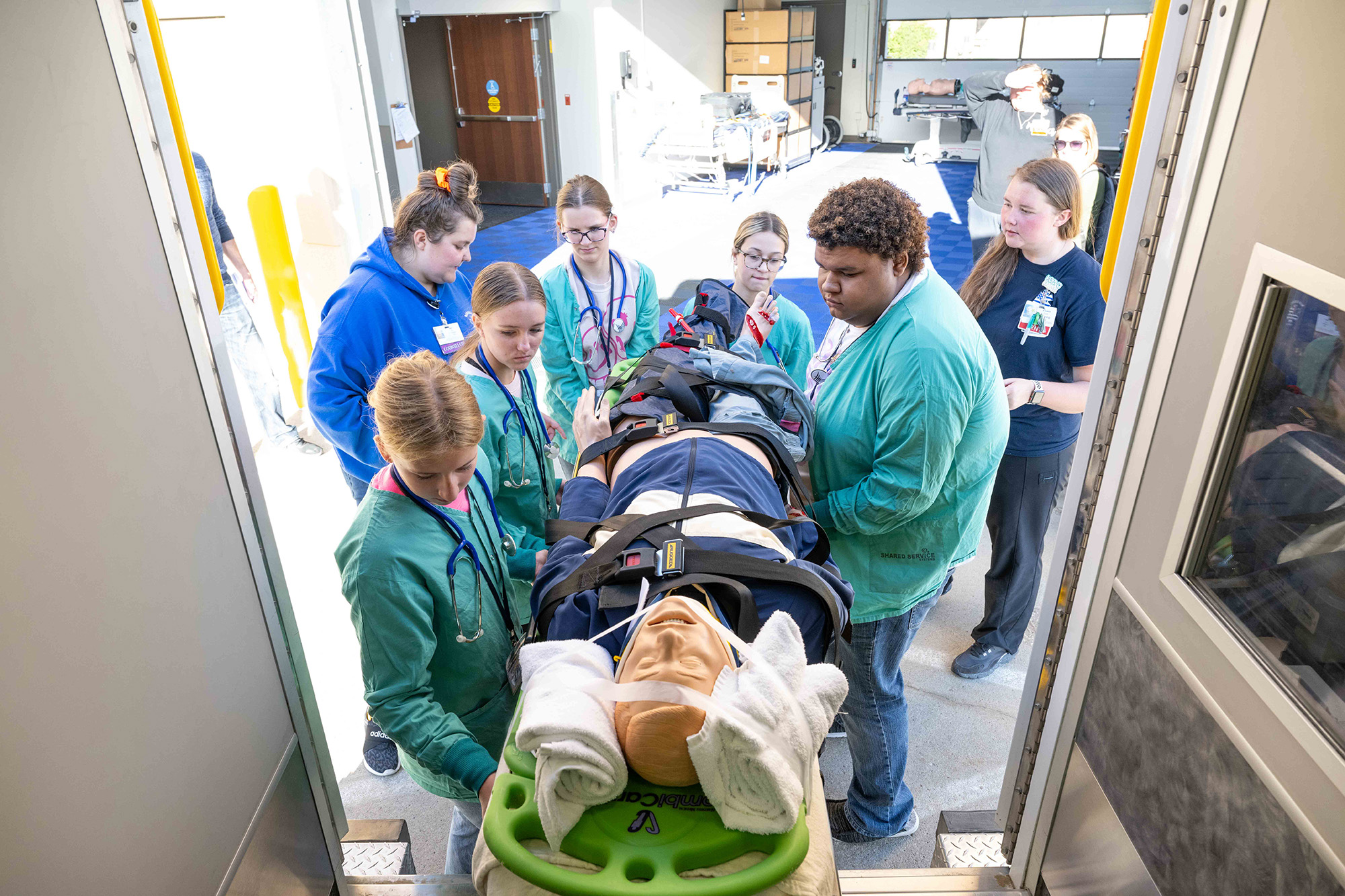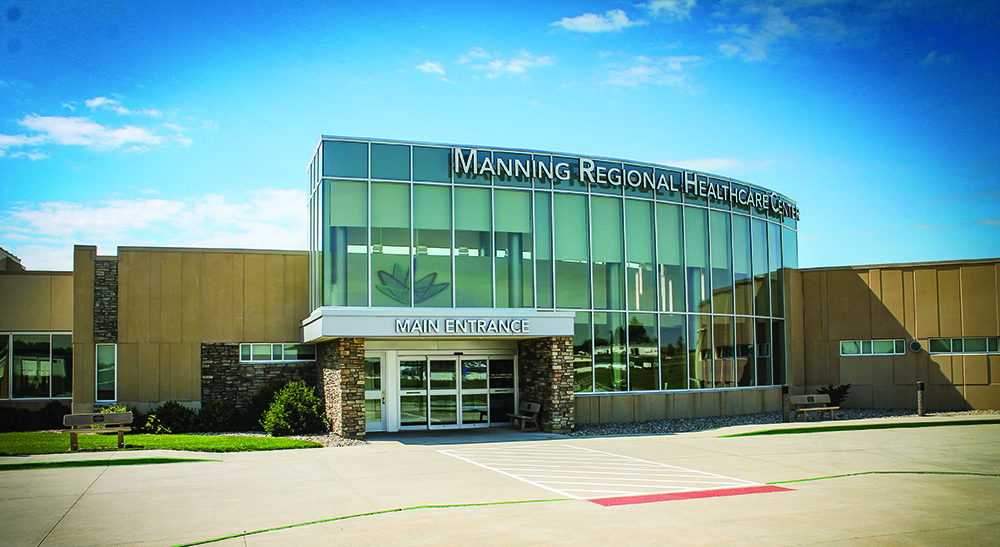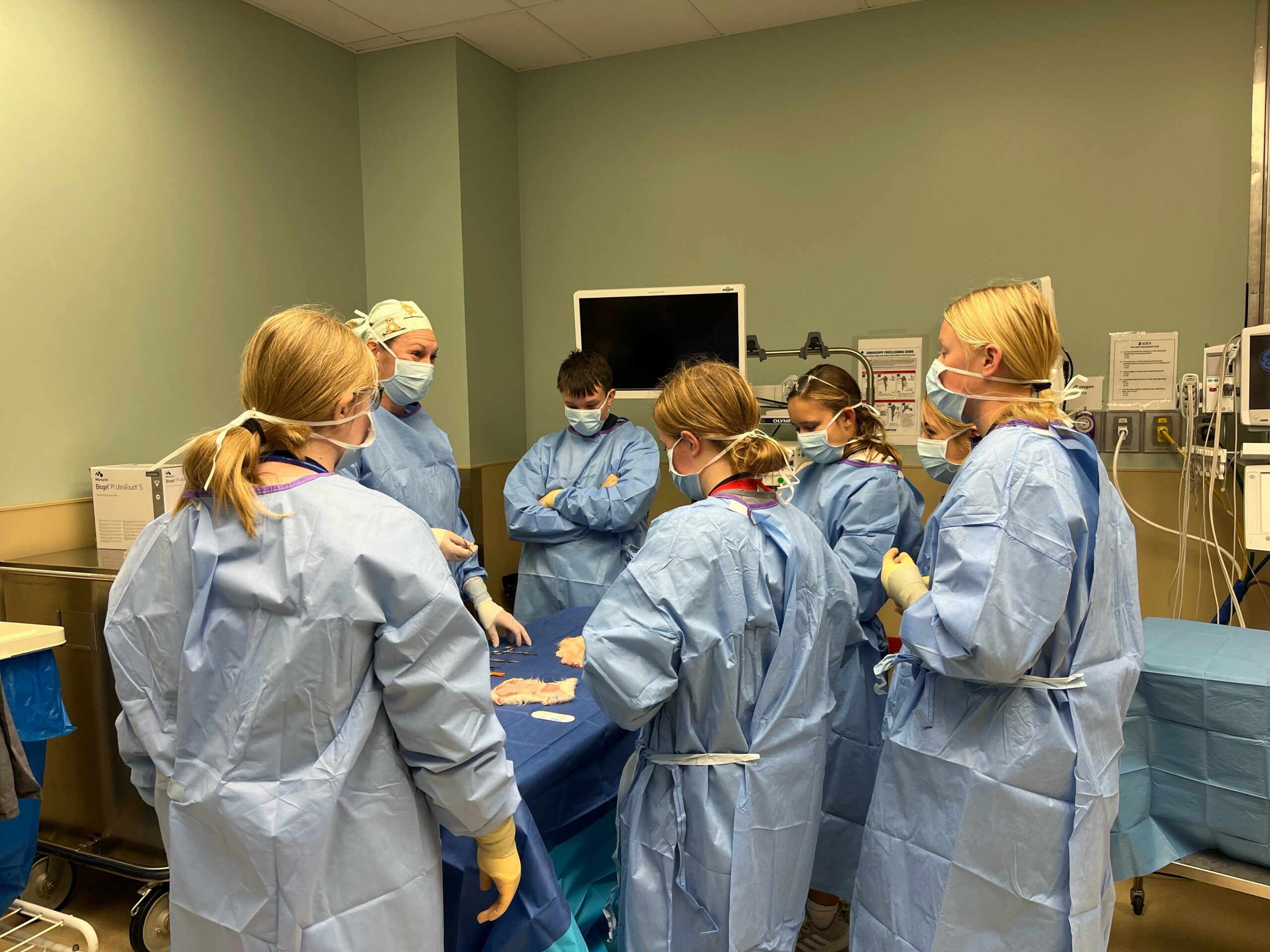*Adapted from article by Richard C. Lewis with the University of Iowa.
It was a grisly scene. A 24-year-old male riding without a helmet had crashed his bicycle into a parked car. The man lay unconscious on the pavement, his right leg splayed at an unnatural angle. And his rescue hinged on a group of untrained adolescents. 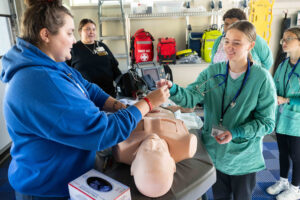
Although they were participating in a simulation, the students took their responsibilities seriously. Each sprang into action to attend the wounded individual—a life-sized mannequin—guided by professional EMT personnel. Tatum, an eighth grader who goes to school in Manning, gently took the head and held it steady while a fellow eighth grade student, Audrey, cut the pants from the man’s wounded leg and applied a vacuum sling to immobilize the limb. They and three others then lifted the patient in unison onto a stretcher and securely loaded him into the ambulance.
The rescue scene was one of several scenarios staged at the Health Care Career Camp this fall in Manning, where middle and high school students from school districts in Manning and Coon Rapids learned about potential careers in the medical and health care fields. The students rotated among several stations, learning what happens on the front lines of the 17-bed critical-access hospital, which serves patients in Carroll and three surrounding counties in west-central Iowa. It was the fourth time MRHC had hosted the camp.
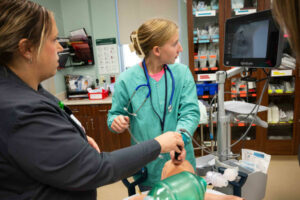 At the emergency room station, the students intubated a mannequin, their eyes wide as they watched on an overhead screen their progress in guiding a breathing tube into a trachea. At the laboratory stop, they practiced drawing blood; at the surgical and anesthesia center, they took turns stitching a wound and using a bone saw; in radiology, they looked awestruck at X-rays of children with broken arm and leg bones and a little boy who had swallowed a quarter; at the physical therapy unit, they learned balance techniques and how to use electric stimulation to help patients regain muscle function, among other activities.
At the emergency room station, the students intubated a mannequin, their eyes wide as they watched on an overhead screen their progress in guiding a breathing tube into a trachea. At the laboratory stop, they practiced drawing blood; at the surgical and anesthesia center, they took turns stitching a wound and using a bone saw; in radiology, they looked awestruck at X-rays of children with broken arm and leg bones and a little boy who had swallowed a quarter; at the physical therapy unit, they learned balance techniques and how to use electric stimulation to help patients regain muscle function, among other activities. 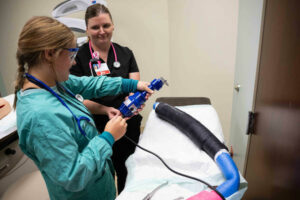
“What makes a difference is the dedication of the people who work here; they show the next generation all the great employment choices that exist here,” says Michelle Andersen, chief nursing officer at MRHC who conceived the idea for the career camp.
The whirlwind tour made an impression on Audrey, who attends school at IKM-Manning, and says she wasn’t sure what to expect—other than getting out of school for the day.
“It has changed the way I thought health care would be,” she says, adding the tour presented a far different picture of a hospital setting than television shows like Grey’s Anatomy. “It’s not always that people are stressed out. There are personal connections with patients, personal connections with your co-workers. It’s more of a people-based job.”
Summer, a sophomore at Coon Rapids High School, was in the same group as Audrey. She says she’s been interested in health and medicine since she was a child when she regularly accompanied her grandfather to the hospital for his cancer treatment appointments.
“I just like the idea of helping people and trying to make people feel better,” Summer says.
The tour not only solidified Summer’s interest in health care and medicine, it seemed to crystallize her desire to become a nurse anesthetist—and, hopefully, to work at a smaller hospital, such as MRHC.
“I would like to keep it close to home,” she says, “because I’m planning on having a family. I grew up around here, and I’d like my kids to also grow up around here.”
The Health Care Career Camp, organized by staff at MRHC, was funded in part by the Business Leadership Network, an initiative from the University of Iowa College of Public Health to promote and empower health and wellness in communities throughout Iowa.
Since launching in 2011, the BLN has coordinated 44 health and wellness efforts in 38 small to mid-sized communities in Iowa. With funding from the Iowa Farm Bureau Federation for the past eight years, the BLN teams up with local businesses and civic and nonprofit agencies. The focus varies, depending on each community’s need. The BLN has spearheaded community public health initiatives that address a broad range of needs with particular emphasis on issues of concern in rural areas, including aging, agricultural health and safety, cyberbullying, immunizations, nutrition and physical activity, substance use, and mental health, among many others.
The goal, explains Edith Parker, dean of the College of Public Health, is to match the college’s resources and expertise with each community’s identified priority. “In public health, it’s critical to listen to local voices and engage communities in health solutions,” Parker says. “When we meet communities where they are and bring resources to support local priorities, there’s a much better chance of improving health outcomes.”
*Click here to read the full article.
